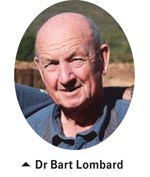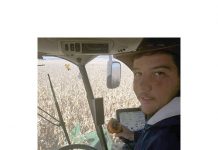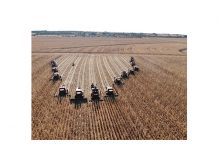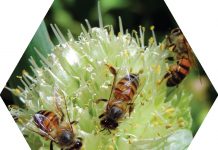July 2015
— prolific wheat breeder
KLAUS PAKENDORF, extraordinary professor: Department Genetics, University of Stellenbosch
 Dr Bart Lombard was born on 12 January 1936 on a Swartland wheat farm in the district of Malmesbury, and passed away on 30 April 2015 at the age of 79 years.
Dr Bart Lombard was born on 12 January 1936 on a Swartland wheat farm in the district of Malmesbury, and passed away on 30 April 2015 at the age of 79 years.
A brief career history
In 1961 he completed a BSc(Agric) degree at the University of Stellenbosch and subsequently his MSc degree in 1963 under the tutorship of the legendary Prof F.X. Laubscher. The title of his thesis was: A study on the hereditary basis of stem rust resistance in wheat. In more than one way this study was to lay the foundation for his life and his future career as a successful plant breeder. He studied and consciously exploited the close host/pathogen relationships, leading to many resistant and successful wheat, barley and lupine cultivars; but more importantly, here in Stellenbosch he also met his future wife, Milly, who ably supported him with technical pathologic assistance for many years.
In March 1963, Dr Lombard joined the Department of Agriculture as a wheat breeder in Bethlehem, where he was tutored by Mr Ernst Pieper (wheat breeder/agronomist) regarding wheat production practices in the Highveld region. At that time, the cultivar Scheepers was still the dominant cultivar used as a utility crop for grazing, however it had poor baking quality and succumbed to stem rust, until Dr Lombard released a selection named Scheepers 69 which, due to its drought resistance is still in production in marginal areas to this day.
During this period, Dr Lombard also established contact with Prof Ian Watson and Prof Bob McIntosh at the University of Sydney, Australia, and this collaboration was critical in his career as a scientist and a successful researcher, and eventually culminated in a PhD degree in 1986, conferred by the University of Stellenbosch in collaboration with the University of Sydney, Australia, with the title: Host pathogen interactions involving wheat and Puccinia graminis tritici in South Africa.
At the Bethlehem Research Station (now the ARC-Small Grain Institute), working with Pieper, the cultivars Betta, Belinda, Barta and Benita were released, which made the production of high quality wheat in the Free State a reality and paved the way for a large expansion of wheat production in this region. In 1975, Dr Lombard joined the Sensako Seed Company and was transferred back to the Welgevallen Greenhouse Complex, University of Stellenbosch, where he worked until his retirement from Monsanto in February 2000.
In 1977 an especially productive period started for Dr Lombard as he masterfully exploited the backcross method to insert single major resistance genes into already existing high yielding quality cultivars of wheat, barley and lupines. The winter wheat cultivars SST 102, SST 103 and SST 124 were released and a range of new spring wheat cultivars emerged for the Western Cape. SST 44 and SST 88 were probably the most important and emerged as dominant wheat cultivars for a long period of time.
In the case of SST 88, this cultivar is currently still being produced although it is not actively marketed any more. Using the same methodology with different pathogens, he released the barley cultivars SSG 525 and SSG 532, as well as lupine varieties SSL 2, SSL 4 and SSL 6 that made significant contributions over many years. In order to circumvent lodging in wheat due to eyespot disease, Dr Lombard successfully introduced the solid stem genes and released the cultivars SST 57 and SST 95 with this trait; SST 57 being the more successful one as it also carried useful stem rust resistance genes. Dr Lombard’s success can be attributed to hard work, an intimate knowledge of the life cycle of various pathogens, the genetics of host cultivars and especially the interaction between host and pathogen.
By nature, Dr Lombard was a quiet, soft-spoken and unassuming individual. Due to his achievements he received various awards, viz. Honorary Membership of the Western Cape Wheat Development Committee (better known under the acronym KKOV). In 1998 he was nominated as the Western Cape Scientist of the Year by the Agricultural Writers Association and subsequently National Agricultural Scientist of the year. In 2013 he was accorded Honorary Membership of the Southern African Plant Breeders Association.
Dr Lombard will be remembered by his colleagues, friends and all wheat breeders for his invaluable contributions.
Publication: July 2015
Section: Relevant

















